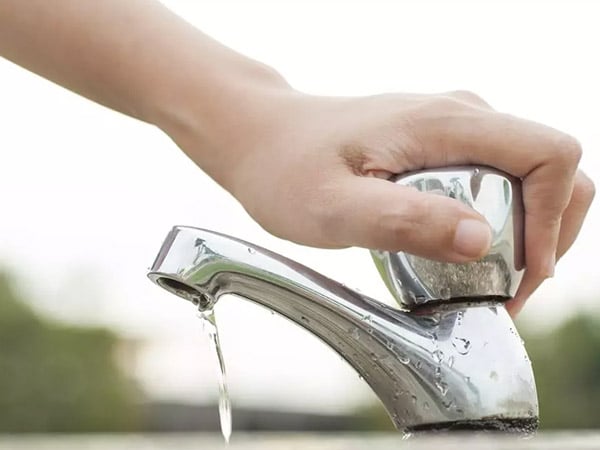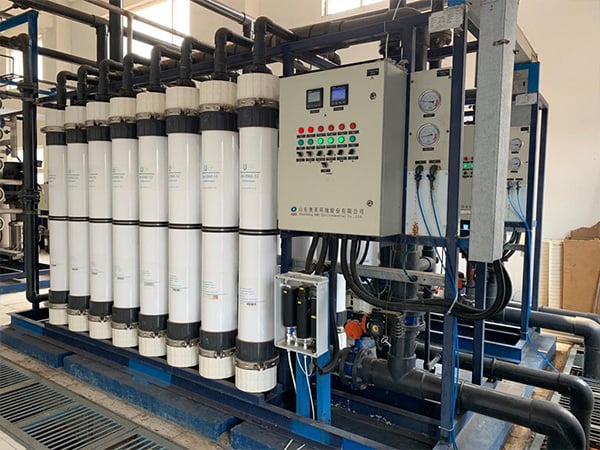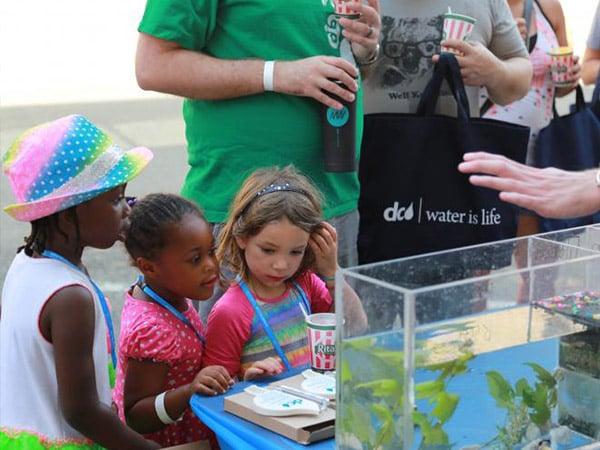Water conservation is one of the most important issues that we must face together. In the era of globalization and rapid population growth, the need for clean water is increasing, while existing water resources continue to decrease. Public awareness and participation in water conservation, from treatment to use, are key to addressing this issue. As a leader in water and sewage treatment solutions in Indonesia, Beta Pramesti Asia is committed to raising this awareness through sustainable technology and innovation.

The Importance of Water Conservation
Water is an irreplaceable source of life. However, with rapid population growth and climate change becoming more apparent, our fresh water resources are under threat. A report from United Nations Water reveals that around 2 billion people in the world live without access to safe drinking water. In Indonesia, water availability and quality issues are serious challenges faced by many regions.
Water conservation is not just about saving water; it is about ensuring that future generations still have access to clean and viable water resources. Through conservation, we can reduce pressure on our water resources, reduce pollution, safeguard ecosystems, and ensure the sustainability of natural resources.
Water conservation is not just about saving water; it is about ensuring that future generations still have access to clean and viable water resources.
In addition, efficient and wise water management can reduce the risk of conflict over water resources, which often occurs in many parts of the world due to water scarcity. By implementing water conservation strategies, we can also improve the efficiency of water use in agriculture, industry, and households, which overall contributes to cost savings and reduced negative impacts on the environment.
Without water conservation efforts, we can improve the efficiency of water use in agriculture, industry, and households.
Without serious conservation efforts, we could face more extreme water shortages, which will impact food production, hygiene, health, and the economy. Therefore, it is important for every individual and community to understand their role in conserving these precious water resources. Educating the public on the importance of water conservation and practical ways to implement it in daily life can help in building a more sustainable and equitable future in terms of clean water access for all.

Community Role in Water Conservation
Community awareness and active participation are essential in water conservation efforts. Every individual has a role to play in conserving water, from daily activities at home to participation in larger community initiatives. Here are some simple yet effective ways to contribute:
- Reducing Water Use at Home: Fixing leaks, using water-saving devices, and limiting shower time can significantly reduce water use. In addition, choosing garden plants that require less water and using rainwater to water plants can further optimize the use of water resources at home.
- Water Use at Home
- Efficient Water Use for Agriculture: For those who garden or farm, the use of drip irrigation systems can save the amount of water used to water plants. Methods such as mulching and planting drought-resistant crops can also improve water use efficiency in the agricultural sector.
- Education and Awareness: Raising awareness about the importance of water conservation through education in schools and communities can motivate more people to take action. Educational programs involving children and youth are vital, as they are the future agents of change who can take the knowledge into their families and neighborhoods.
- Education and Awareness: Raising awareness about the importance of water conservation through education in schools and communities can motivate more people to take action.
In addition, adopting water-saving technologies in public and industrial facilities also plays an important role in conservation efforts. Cooperation between the government, private sector, and NGOs can encourage the adoption of policies that support the sustainable and efficient use of water.
Success stories from communities that have successfully implemented water conservation programs can be very inspiring. For example, several villages in Indonesia have successfully overcome water crises through shared water resource management and water saving techniques. Initiatives such as water banks, which allow communities to store rainwater for use in the dry season, have proven their effectiveness in maintaining water availability in these communities.

Technology and Innovation in Water Treatment
Technology plays a key role in water conservation efforts, from wastewater treatment systems to smart irrigation solutions. Innovations such as desalination, rainwater use, and water purification technologies give us new ways to maximize existing water resources. Information and communication technology (ICT) has also been leveraged to improve water resources management through the use of smart sensors and remote monitoring systems that can optimize water usage and real-time leak detection.
Beta Pramesti Asia, as a provider in water and sewage treatment solutions in Indonesia, has implemented various innovative technologies to support water conservation. One example is the development of a water purification system that uses ultrafiltration membrane technology, which effectively removes particles, bacteria, and viruses from water, thus making it safe for consumption. This technology not only improves water quality but also efficiency in its use, with reduced waste and increased water recycling.
In addition, Beta Pramesti Asia has been working on projects that utilize wastewater treatment technologies that enable the reuse of wastewater for various needs, such as irrigation and industry, thereby reducing pressure on natural clean water sources. The implementation of smart irrigation systems that can adjust watering based on soil moisture and weather forecasts is also a step forward in efforts to reduce water wastage in agriculture.

Steps Toward Sustainable Water Use
To achieve sustainable water use, concrete steps are needed from both government and society. These include:
- Policies and Regulations: Governments can implement policies that support water saving and conservation, such as subsidies for water-saving technologies and regulation of industrial water use. In addition, the introduction of standards for sustainable management of water resources in the agricultural and industrial sectors can help reduce excessive water consumption and promote recycling and reuse of water.
- Community Participation: Communities should be involved in decision-making processes related to water resources management, ensuring that their voices are heard and their interests represented. Initiatives such as the formation of water user groups at the local level can facilitate more effective and inclusive management of water resources, encouraging shared responsibility for water conservation.
- Education and Campaigns: Education programs and awareness campaigns can increase community knowledge about the importance of water conservation and ways to participate. Schools and universities can integrate curricula on water resources management, while media and online platforms can be used to disseminate information on best water conservation practices and community successes in sustainably managing water resources.
In addition to these measures, it is also important to promote research and development in water conservation technologies, which can generate new solutions to address water management challenges. International cooperation and knowledge exchange on best practices in water resources management can also help countries adopt more sustainable and efficient approaches.
Through collaboration between governments, the private sector, communities, and individuals, we can make great strides towards more sustainable water use. The active involvement of all parties and the adoption of a holistic approach to water resources management are key to achieving this goal and ensuring water availability for future generations.
-
Water conservation is the responsibility of all of us. With public awareness and active participation in conservation efforts, from treatment to use, we can ensure that clean water resources remain available for future generations. Every action, no matter how small, contributes to the broader global conservation effort, reducing our impact on the environment and helping to keep ecosystems in balance.
Adopting new technologies, supporting sustainable policies, and participating in local initiatives are all important steps we can take. Continuous education and collaboration between all levels of society, including government, the private sector, communities, and individuals, are key to building a sustainable future.
Let's take action to build a sustainable future.
Let's take concrete steps in our daily lives and contribute to a more sustainable future. By collaborating and sharing knowledge, we can not only reduce our own water footprint but also encourage others to do the same. Together, we can make a significant difference in water conservation efforts, ensuring the sustainability of water resources for not only our lives but also for generations to come.
It is important to remember that water conservation is not just about saving water; it is about changing the way we think about and interact with this most precious of natural resources. By making conservation a part of our lifestyle, we can help keep the planet healthy and alive for a bright and sustainable future.
Water conservation is not just about saving water; it is about changing the way we think about and interact with this most precious of natural resources.
If you or your organization is looking for innovative water conservation solutions, please feel free to contact Beta Pramesti Asia. As a leader in water treatment and conservation technology, we are ready to help you identify and implement solutions that are not only effective but also sustainable.
Contact us.
Contact us today via Whatsapp or e-mail to learn more about how we can help you achieve your water conservation goals in a sustainable and efficient manner.
.